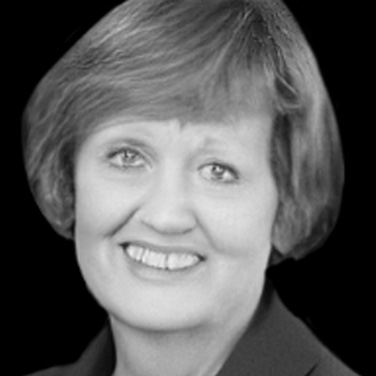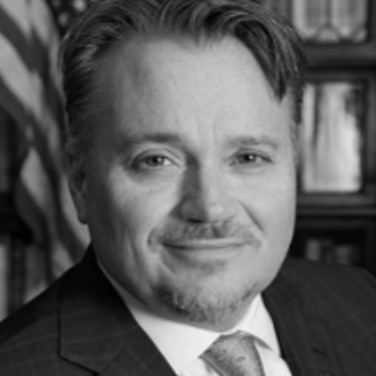Center for Climate and Trade
CO-Chairs


Ambassador Charlene Barshefsky is widely recognized as a central thought leader and practitioner in the fields of international business and international economic and trade issues. She is best known as the architect and chief negotiator of China’s historic agreement to enter the World Trade Organization. She served as President Clinton’s U.S. trade representative from 1997 to 2001 and as acting and deputy USTR from 1993 to 1996.
As the USTR and a member of the president’s cabinet, Ambassador Barshefsky was responsible for the formulation of U.S. trade policy and the negotiation of hundreds of complex trade and investment agreements that significantly opened markets, removed regulatory barriers, and cemented protections for U.S. investment from Europe to Asia, Africa to Latin America, and the Middle East. She also led the negotiation of global agreements to open the financial services and telecommunications sectors, remove global tariffs on information technology products, and protect intellectual property rights.
Ambassador Barshefsky’s legal career has encompassed international litigation, commercial and government negotiations, investment and regulatory advice, and dispute resolution, and she has written and lectured extensively both here and abroad. Her negotiations are the subject of several Harvard Business School case studies, and she has received many honors for lifetime achievement, including a number of honorary degrees and industry awards. She currently serves as chair of Parkside Global Advisors in Washington DC. Previously, she was senior international partner at WilmerHale, where she chaired the firm’s International Trade, Investment and Market Access Group.
Ambassador Barshefsky serves on the boards of directors of the American Express Company, the Estée Lauder Companies, and MDC Partners. She is a trustee of the Howard Hughes Medical Institute, a member of the Council on Foreign Relations and a senior fellow at Yale University’s Paul Tsai China Center.

James L. Connaughton is a globally distinguished energy, environment, and technology expert, corporate leader, and prominent White House policymaker. He served for eight years as chairman of the White House Council on Environmental Quality under President George W. Bush. In that role, he worked directly with the president, the Cabinet, Congress and the states to develop and implement energy, environmental, natural resource, and climate change policies.
Mr. Connaughton played a leading role in the bipartisan enactment of the Energy Security Act of 2005 and the Energy Independence and Security Act of 2007; legislation addressing brownfields cleanup, ending overfishing, and restoring forest health; and regulation cutting harmful air pollution and protecting wetlands. He led the creation of and represented the president in the Major Economies Meetings on Energy and Climate, laying the groundwork for new international agreement and cooperative action on energy security and climate change. He also chaired the U.S. Cabinet Committee on Ocean Policy and development of the U.S. Ocean Action Plan, and led the establishment of four of the largest and most ecologically diverse marine resource conservation areas in the world.
Mr. Connaughton is CEO of Nautilus Data Technologies, a water-cooled, ultra-efficient, high performance data center company. From 2013-2016, he was executive vice president at the enterprise artificial intelligence company C3.ai. Prior to that, he served as executive vice president and senior policy advisor at Constellation Energy and Exelon.
Mr. Connaughton is an advisor to X (Google’s Moonshot Factory), Shine Technologies, and the ClearPath Foundation. He serves on the boards of Resources for the Future, Columbia University Center on Global Energy Policy, Yale Center on Environmental Law and Policy, and American Conservation Coalition.

Jennifer Hillman has had a distinguished career in government service focused on the rules-based trading system. She served as one of seven members of the World Trade Organization’s Appellate Body, the WTO’s highest court. As a commissioner at the U.S. International Trade Commission, she adjudicated trade remedy and intellectual property cases along with conducting trade-related economic studies. While serving as general counsel at the Office of the United States Trade Representative, Ms. Hillman was involved in all litigation matters coming before panels of the NAFTA or the WTO. She negotiated bilateral agreements with 45 countries while serving as USTR’s ambassador and chief textiles negotiator.
Ms. Hillman is a professor at the Georgetown University Law Center and a senior fellow at the Council on Foreign Relations. Her work has examined the rules-based trading system’s implications for everything from climate change to Brexit, to China’s Belt and Road Initiative, to critically needed reforms at the WTO.
Before joining USTR, she was the legislative director for U.S. Senator Terry Sanford of North Carolina. She was a partner in the law firm of Cassidy Levy Kent, a senior transatlantic fellow for the German Marshall Fund of the United States, a member of the selection panel for the Harry Truman Scholarship Foundation and served on the board of visitors of the Sanford School of Public Policy at Duke University.
POLICY ADVISORS

George David Banks serves as a policy advisor to the Center. He is a senior fellow at the Atlantic Council and fellow at the Bipartisan Policy Center, focusing on U.S. foreign climate policy. Mr. Banks recently served as chief strategist for the Republican side of the House Select Committee on the Climate Crisis. Previously, he was special assistant for international energy and environment at the National Economic and National Security Councils, Republican deputy staff director of the U.S. Senate Environment & Public Works Committee, and senior White House advisor on international affairs and climate change.

Nigel Purvis is the founding CEO of Climate Advisers, a consultancy specializing in U.S. climate policy, international climate diplomacy, carbon markets, and climate communications. He served previously as deputy assistant secretary of state for oceans, environment, and science. In that role, he directed U.S. foreign policy relating to climate change, forests, and other environmental issues. He was also a senior policy adviser to the under secretary of state for global affairs and a treaty negotiator in the Office of the Legal Adviser. After leaving government, Mr. Purvis spent a decade as a senior scholar in major think tanks and advocacy organizations. He was senior fellow at the Brookings Institution and an international affairs fellow at the Council on Foreign Relations. He also served as vice president for policy and external affairs at the Nature Conservancy.

Maureen Hinman is a leading policy expert on environmental industry and the co-founder and chairman of Silverado Policy Accelerator. She recently served as director for environment and natural resources at the Office of the United States Trade Representative. At USTR, she led a range of multilateral, regional, and bilateral trade policy initiatives focused on the environmental goods and services sector as well as natural resource conservation. Prior to that, Ms. Hinman served as the U.S. Department of Commerce’s senior industry trade specialist responsible for international policy development and interagency advocacy for the U.S. environmental technology industry.

Sarah V. Stewart is the executive director of Silverado Policy Accelerator. She has nearly two decades of experience as an international trade lawyer, policy expert, and negotiator. Immediately prior to joining Silverado, Ms. Stewart led the public policy efforts at Amazon on U.S. trade policy and export controls matters. Ms. Stewart also served at the Office of the United States Trade Representative as deputy assistant United States trade representative for environment and natural resources. During her time at USTR, Ms. Stewart was the lead environment chapter negotiator for the US-Mexico-Canada Agreement and the Transatlantic Trade and Investment Partnership negotiations with the European Union.

Dr. Michael Mehling is deputy director of the MIT Center for Energy and Environmental Policy Research and a professor at the University of Strathclyde Law School in Glasgow, Scotland. He is also a founding editor of the Carbon & Climate Review and a founding board member of Ecologic Institute in Washington DC, the Blockchain & Climate Institute in London, and the European Roundtable on Climate Change and Sustainable Transition in Brussels. Dr. Mehling has coordinated research and advisory projects on climate policy design and implementation for international organizations, government agencies, and civil society organizations in North America, Europe, and the developing world.
Executive Director

Catrina Rorke serves as executive director of the Center for Climate and Trade and senior vice president, policy and research at the Climate Leadership Council. Prior to joining the Council, Ms. Rorke was director of energy policy and senior fellow at the R Street Institute, a free-market and limited government public policy organization, where she founded the Institute’s energy and environment program. She also founded the energy program at the center-right American Action Forum, an economic, domestic, and fiscal policy think tank. As a legislative assistant to former U.S. Rep. Bob Inglis of South Carolina, Ms. Rorke helped craft the first Republican-sponsored carbon tax bill. She began her career as a presidential management fellow with the National Oceanic and Atmospheric Association.
Ms. Rorke has been recognized for her leadership in energy and climate policy by E&E News, The Hill, National Journal, and Grist, and her work has been published in national, local, and trade media. She supports center-right policy work by serving as a board member and advisor to several policy-focused organizations.
To learn more about the Center’s mission and activities, please contact us at TheCenter@clcouncil.org.
Vice President, Policy and Research

Matt Porterfield, in his role as Vice President, Policy and Research, works to advance the research agenda and products developed by the Climate Leadership Council. With more than 25 years experience in international economic law, particularly with respect to trade rules and environmental policy, Porterfield brings a special focus to the Council and its Center for Climate and Trade.
Prior to joining the Council, he was the deputy director of the Harrison Institute for Public Law at the Georgetown University Law Center, where he continues to serve as an adjunct professor. He has published a number of influential works that have advanced our understanding of international trade rules and their application to environmental issues, including on WTO-compliant border adjustments and U.S. upstream greenhouse gas taxes.
Mr. Porterfield received an LL.M. from Georgetown University, a J.D. from Vermont Law School, and a B.A. in English from University of Vermont.
